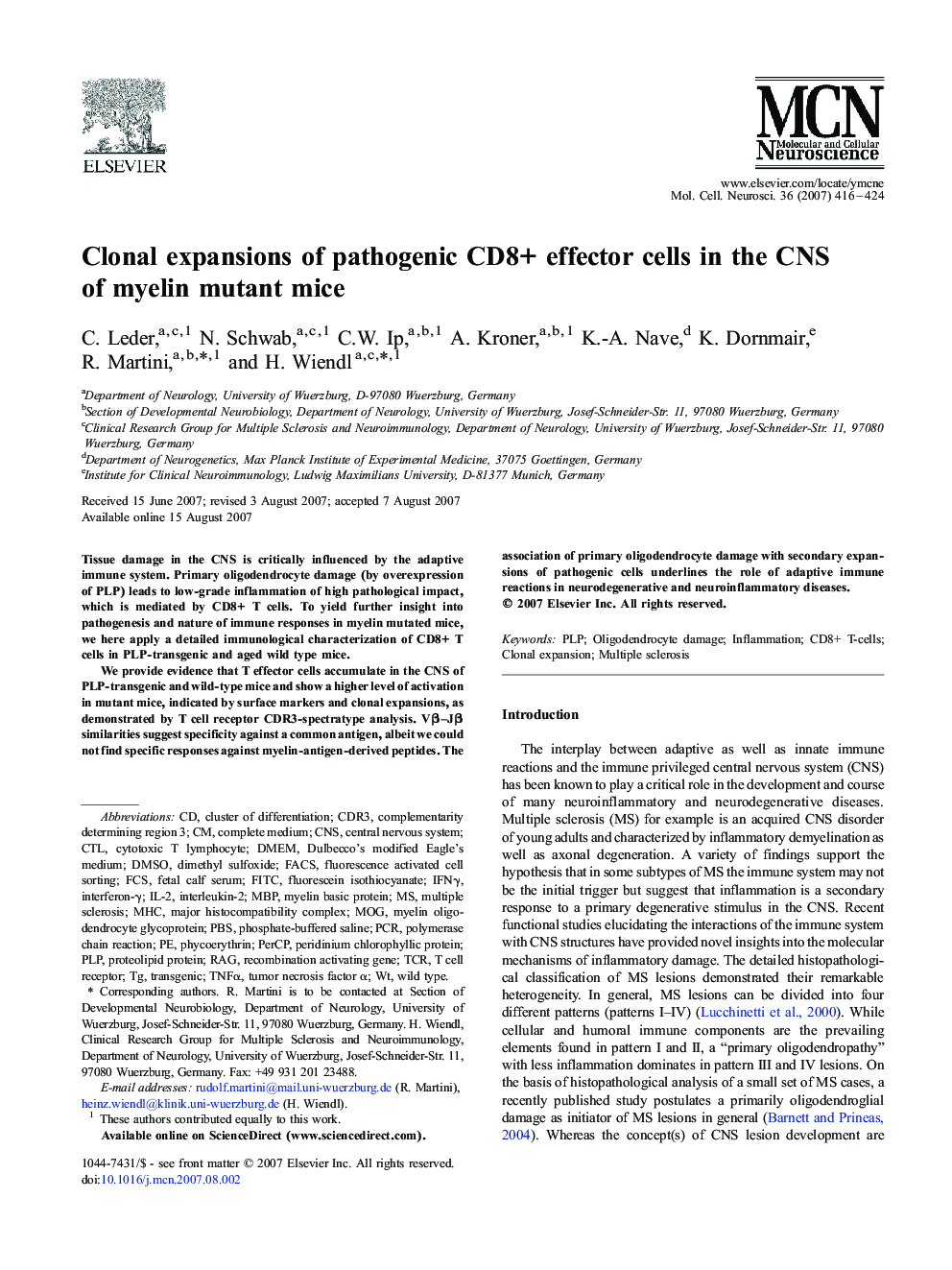| Article ID | Journal | Published Year | Pages | File Type |
|---|---|---|---|---|
| 2199268 | Molecular and Cellular Neuroscience | 2007 | 9 Pages |
Tissue damage in the CNS is critically influenced by the adaptive immune system. Primary oligodendrocyte damage (by overexpression of PLP) leads to low-grade inflammation of high pathological impact, which is mediated by CD8+ T cells. To yield further insight into pathogenesis and nature of immune responses in myelin mutated mice, we here apply a detailed immunological characterization of CD8+ T cells in PLP-transgenic and aged wild type mice.We provide evidence that T effector cells accumulate in the CNS of PLP-transgenic and wild-type mice and show a higher level of activation in mutant mice, indicated by surface markers and clonal expansions, as demonstrated by T cell receptor CDR3-spectratype analysis. Vβ–Jβ similarities suggest specificity against a common antigen, albeit we could not find specific responses against myelin-antigen-derived peptides. The association of primary oligodendrocyte damage with secondary expansions of pathogenic cells underlines the role of adaptive immune reactions in neurodegenerative and neuroinflammatory diseases.
